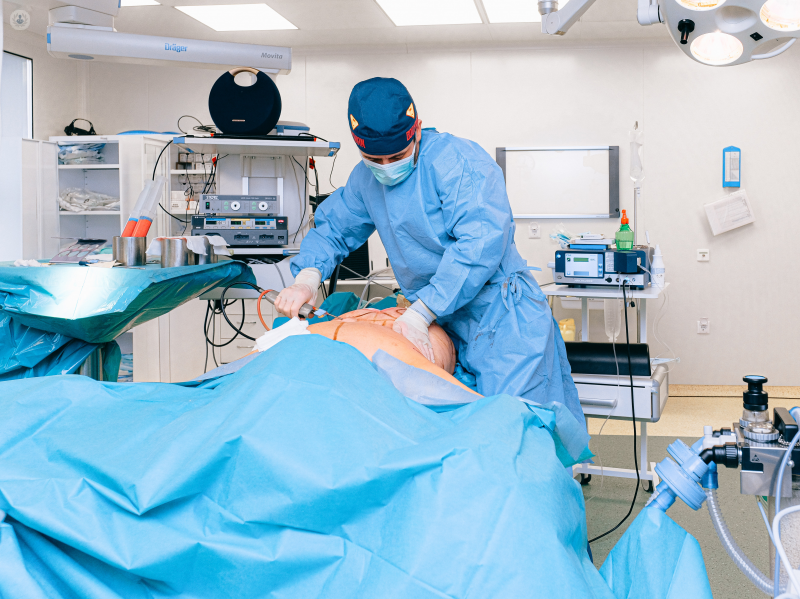How is orthopaedic surgery being affected by COVID-19?
Written by:All aspects of medical practice in general, let alone orthopaedic surgery, have been hugely affected by the pandemic caused by COVID-19. There are national guidelines in place to help orientate surgeons in taking care of trauma and orthopaedic patients during this time, with the main aim of protecting the health and safety of both the patient and medical personnel.
Although elective surgery is postponed, some patients still need care during this time, particularly those involved in accidents or sudden illnesses, and there may be some confusion as to what our next steps are if this happens. One of our top orthopaedic surgeons from Birmingham, Mr Tarek El Gamal, clears this up for us.

How has orthopaedic surgery been affected by the COVID-19 pandemic?
As an orthopaedic team, we have been redeployed to support frontline workers, both in A&E and ITU, which has had a massive impact on the surgeries that can be performed. For the next six weeks, all elective orthopaedic procedures have been suspended due to COVID-19.
What counts as emergency/urgent care?
NHS England has recently published a surgical prioritisation document. This document categorises the urgency of various surgical procedures; from urgent and needing attention in the next 24 hours to those that can be done within a 3-month window.
As far as trauma and orthopaedic surgery are concerned, the list of common emergency procedures that are continuing are for fractures, joint dislocations, joint infections, etc.
Many other conditions that could arise also require urgent attention. These will still go ahead so that the patient’s condition doesn’t worsen, however, you may find the usual process to be adapted slightly to safeguard the patient and medical staff. Each decision is taken on a case-by-case basis.
If someone needs an emergency appointment, what should they do?
Patients should call the NHS on 111 and someone will advise them on the next steps in management. For private patients, they can book an online video consultation via Top Doctors.
Many people are exercising at home, how can sports injuries be avoided during the pandemic?
As per the general health guidelines, you should be doing regular exercise at least 2-3 times per week. But, there are a few tips I can offer to avoid sports injuries while exercising at home.
- Avoid strenuous exercise at the start
Firstly, you should avoid strenuous exercises at the beginning; it’s always better to listen to your body and to not push yourself too much. You can begin with moderate exercises for 20 minutes and then increase the intensity as you feel comfortable.
- Pre-workout stretching exercises
Secondly, you must do stretching exercises before you start any workout to avoid potential muscle or joint injuries. Stretching increases the blood flow around the body which helps make it more flexible. You should focus on the areas of the body in which you plan to work out during the session. Many people find that a warm-up before results in a much more energetic and effective workout overall.
- Always stay hydrated
Lastly, always make sure that you are very well hydrated before, during and after exercising. Water helps to regulate your body temperature, lubricates your joints and facilitates in the transportation of nutrients around the body, which will increase your energy levels.
Can patients treat sports injuries at home?
Various types of sports injuries can occur from exercising and the commonest is an ankle sprain.
When it comes to treating sports injuries, the management plan depends on the type of injury, patient-level of activity and the medical comorbidities. Generally, if you have suffered from a sports injury, remember that the gold standard in managing it is to follow the RICE protocol:
R - rest the injured limb for 48 hours
I - ice for 20 minutes 4-6 times per day
C - compression to reduce swelling
E - elevation of the injured limb above the level of the heart
If you have a mild to moderate sprain and you follow these steps, you can expect the injury to improve over the following days. Do not go back to exercising that area until you feel it has fully healed. If after a few days you don’t see any sign of improvement, then you should call your GP, 111 or speak to a consultant orthopaedic over video consultation for advice.
To book an e-Consultation with Mr Tarek El Gamal, visit his Top Doctors profile and check his availability.


